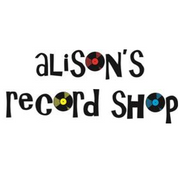
Listening to vinyl records was once a common way for people to enjoy their favorite music. Modern music lovers, however, have embraced the simplicity and sound quality of vinyl, and it has enjoyed a revival in recent years. If you’ve ever wondered exactly how music plays from a record player, here’s what you should know.
The Key Components
Record players consist of several major components that play a significant role in delivering sound. The turntable is the rotating element where you place the vinyl record, while the tonearm is the lever that hovers above the record. This lever supports the cartridge, which is a magnetic element that holds the stylus, a needle that presses into the record’s grooves.
The First Stage
 These parts work in tandem to produce sound. When the record is set on the turntable, it rotates at a speed of 33, 45, or 78 revolutions per minute (RPM) depending on its type. After the player is turned on, the tonearm lowers slowly over the spinning record. This allows the stylus to make contact with the minuscule grooves in the record as it spins, which creates a vibrating response.
These parts work in tandem to produce sound. When the record is set on the turntable, it rotates at a speed of 33, 45, or 78 revolutions per minute (RPM) depending on its type. After the player is turned on, the tonearm lowers slowly over the spinning record. This allows the stylus to make contact with the minuscule grooves in the record as it spins, which creates a vibrating response.
The Second Stage
Once the stylus begins to vibrate, the cartridge in which it’s located responds similarly. Cartridges are transducers, or electromechanical elements designed to transform those reverberations into electrical signals. Those currents change depending on the way the stylus vibrates.
The signal then passes through an amplifier, where it is increased before it goes through the speakers. Speakers contain diaphragms, which receive the electronic signal and create sound waves by vibrating. The result is the same sound that was originally pressed into the record’s grooves during recording.
The Sound Quality
Vinyl records are often celebrated for producing pure, authentic sound. Unlike digital files, which go through a complicated conversion process, records play the music as close to the artists’ original rendition as possible — that is, without elements like digital compressing that eliminate much of the character and depth of the initial recording.
Vinyl is mastered meticulously, with strict attention given to groove depth. That allows for optimal sound quality, without the need to adjust or edit the original copy with in-studio tweaks. The effect is warm, rich, and natural, much like hearing the artist perform the song live in the room.
Music lovers throughout Nashville, TN, know that Alison’s Record Shop is the place to go for high-quality vinyl records. They have a vast selection from all genres, and you can even listen to open copies on the in-store turntables before you make your purchase. Visit the record shop online to find out more, or call (615) 356-0180 to speak with a representative.
About the Business
Have a question? Ask the experts!
Send your question

